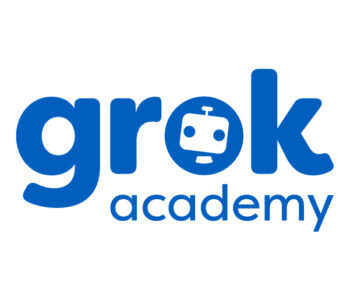The following workshops and tutorials will be hosted during the 2023 ACSW. Attendance at the workshops and tutorials is inclusive with ECR and HDR ACSW registration.
Note registration for the Digital Technologies Curriculum Workshop hosted by Grok Academy on Friday 3 February is free to attend however space is limited and separate registration is required.
Introduction to Deep Learning and Tensorflow
Tuesday 31 January, 11:30 – 17:30, Room 901 | Level 9, Building H, Monash University, Caulfield Campus.
Convener, Mitchell Hargreaves, Junior Deep Learning Engineer, Monash University.
Note: Attendees need to bring their own laptop.
This workshop is an introduction to how deep learning works and how you could create a neural network using TensorFlow v2. We start by learning the basics of deep learning including what a neural network is, how information passes through the network, and how the network learns from data through the automated process of gradient descent. You would build, train and evaluate your very own network using a cloud GPU (Google Colab).
This workshop is targeted at professionals with some data science knowledge who would like a theoretical and hands-on introduction to deep learning. The workshop assumes background knowledge in Python programming. A high level understanding of calculus and matrix operations is beneficial but not essential. Prior experience with machine learning is not required.
How to solve all the worlds (combinatorial) problems
Thursday 2 February, 11:30 – 15:30, Room 921 | Level 9, Building H, Monash University, Caulfield Campus.
Convener, Professor Peter Stuckey, Department of Data Science and Artificial Intelligences, Faculty of Information Technology, Monash University.
Note: Attendees need to bring their own laptop. Attendees should be able to run the MiniZinc workshop problems from the browser, though they may want to preinstall MiniZinc on their laptop.
The world is full of hard discrete optimisation problems. You have experienced them already if you have ever solved a sudoku puzzle or organised the seating at a wedding banquet. These problems underpin much of our daily lives and are part of determining daily delivery routes for packages, making school timetables, and delivering power to our homes. Despite their fundamental importance, all of these problems are a nightmare to solve using traditional computer science methods.
In this short tutorial, you will be introduced to an entirely new way to think about solving these challenging discrete optimisation problems by stating the problem in the high-level modelling language, MiniZinc, and letting constraint solving software do the rest. This will allow you to unlock the power of industrial solving technologies, which have been perfected over decades by hundreds of researchers.
Stress-testing algorithms to expose their strengths and weaknesses
Thursday 2 February, 11:30 – 15:30, Room 901 | Level 9, Building H, Monash University, Caulfield Campus.
Conveners
Prof. Kate Smith-Miles, OPTIMA, School of Mathematics and Statistics
The University of Melbourne, Australia
Dr. Mario Andrés Muñoz, OPTIMA, School of Computer and Information Systems
The University of Melbourne, Australia
A common question faced by practitioners when developing an algorithmic solution is “Which algorithm is best for my problem instance?” Answering this question requires extensive testing, as to understand the strengths and weaknesses of an algorithm, and their relationship with the structure of the problem instance.
This tutorial introduces Instance Space Analysis (ISA), a visual methodology for algorithm evaluation that focuses on understanding this relationship. Moreover, ISA provides opportunities to gain nuanced insights into the relative power of algorithms, and whether the test instances have been chosen without bias. A space is constructed whereby an instance is represented a point in a 2d plane, with algorithm footprints being the regions of predicted good performance of an algorithm, based on statistical evidence. From this broad instance space, we can assess the diversity of a chosen test set. Moreover, through ISA we can identify regions where additional test instances would be valuable to support greater insights. By generating new instances with controllable properties, an algorithm can be “stress-tested” under all possible conditions. The tutorial makes use of the on-line tools available at the Melbourne Algorithm Test Instance Library with Data Analytics (MATILDA) and provides access to its MATLAB computational engine. MATILDA also provides a collection of ISA results and other meta-data available for downloading for several well-studied problems from optimization and machine learning, from previously published studies.
Digital Technologies Curriculum Workshop
Curriculum Workshop
Friday 3 February, 09:00 – 16:00, Room 901 | Level 9, Building H, Monash University, Caulfield Campus.
The workshop is free to attend, however space is limited.
Hosted by Grok Academy, this workshop will focus on reviewing the Australian Curriculum: Digital Technologies and how the design of undergraduate curricula does (and might) respond to the capabilities of students who have been exposed to the full curricula.
Who should attend?
- Academics with responsibility for teaching computer science/software engineering across our tertiary institutions – ie Deputy Head of School/Department (Teaching/Education), Undergraduate Directors or first year coordinators.
- University staff who are engaged in outreach to schools or high school students within the school/dept/faculty.
- Secondary teachers.
 Curriculum Workshop
Curriculum Workshop